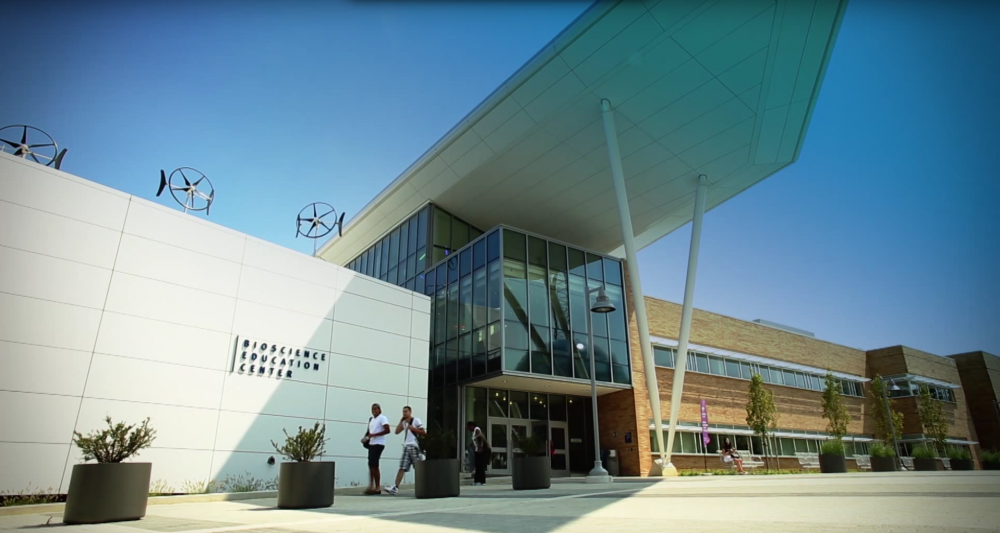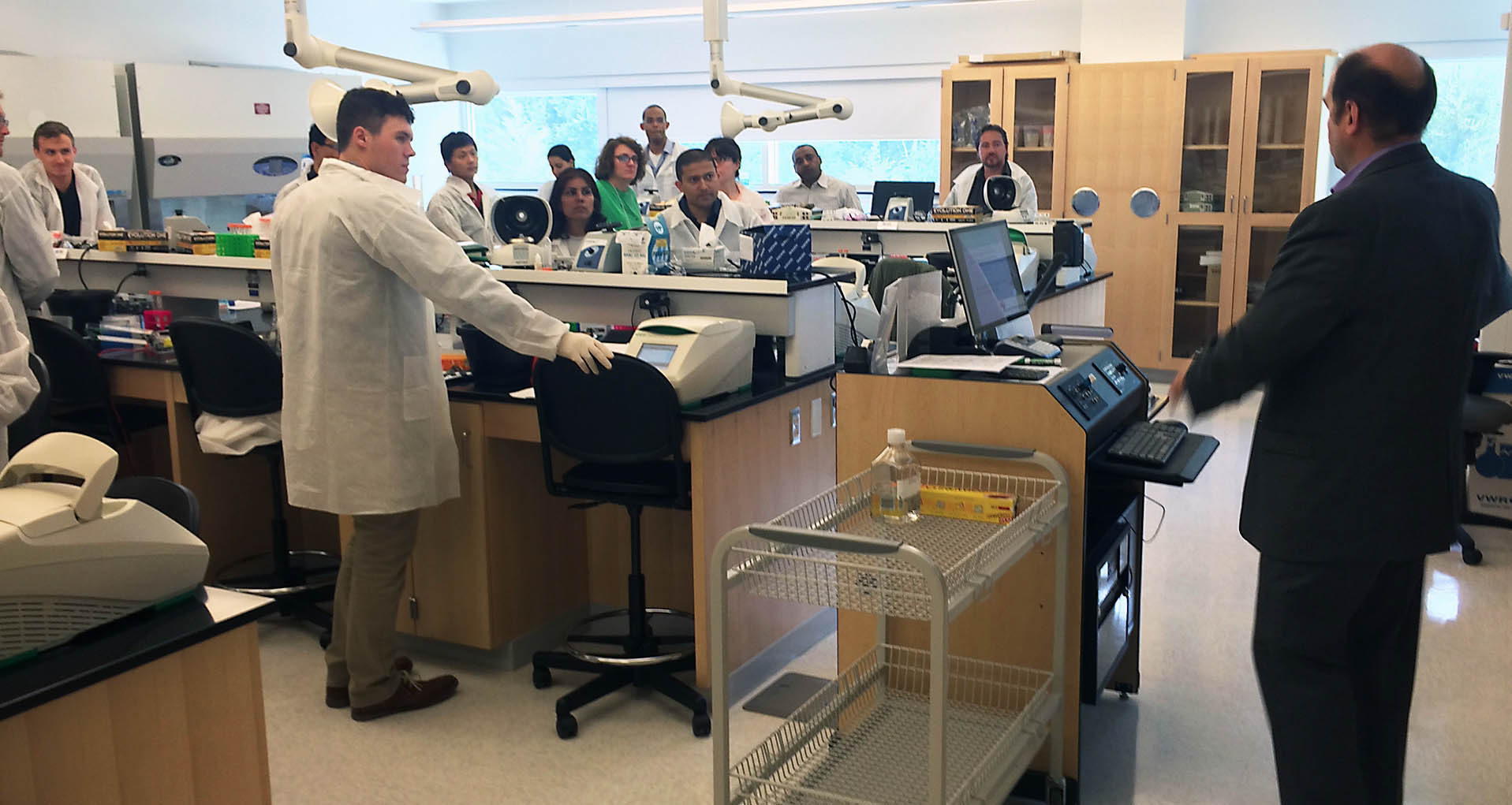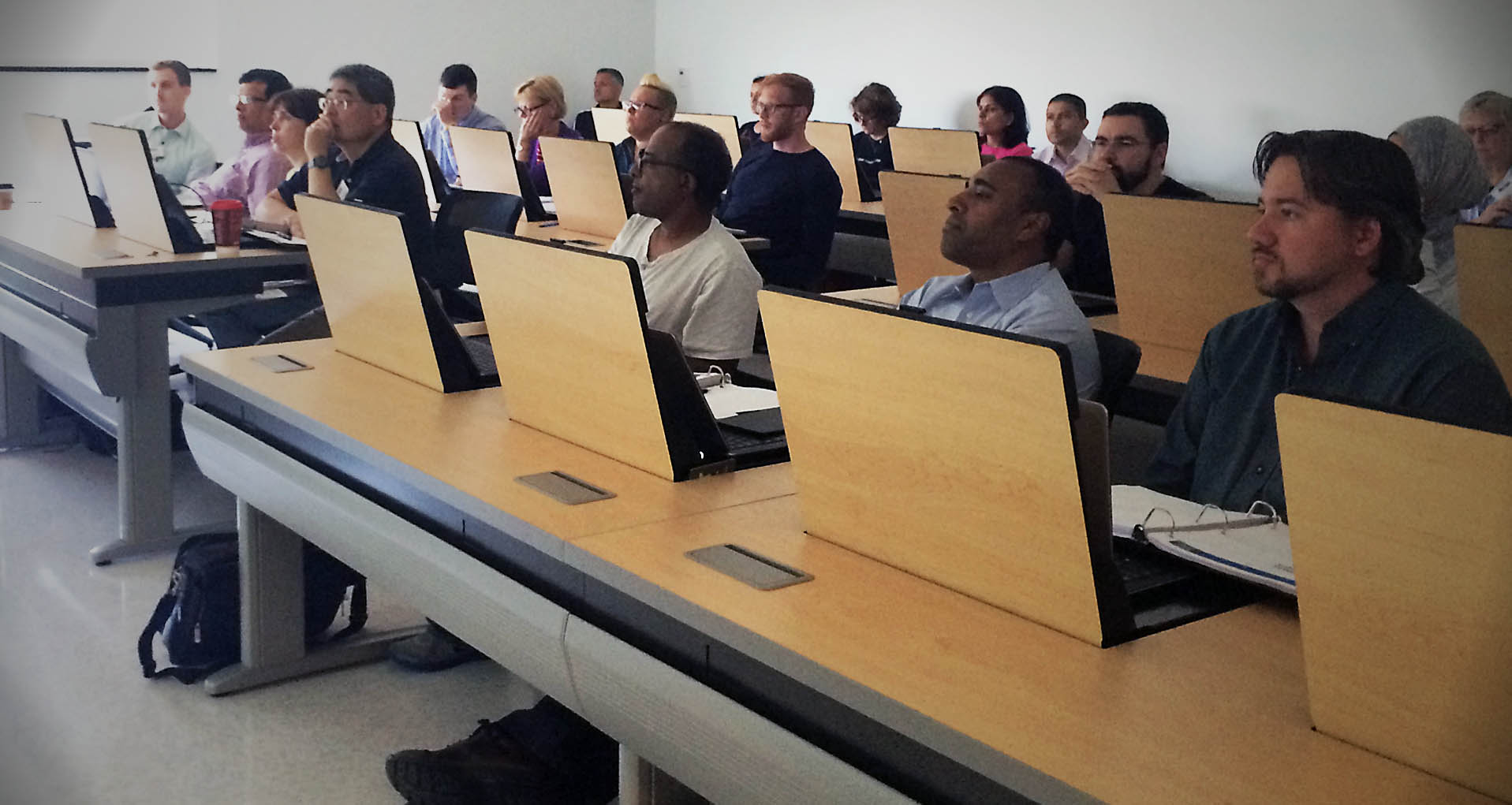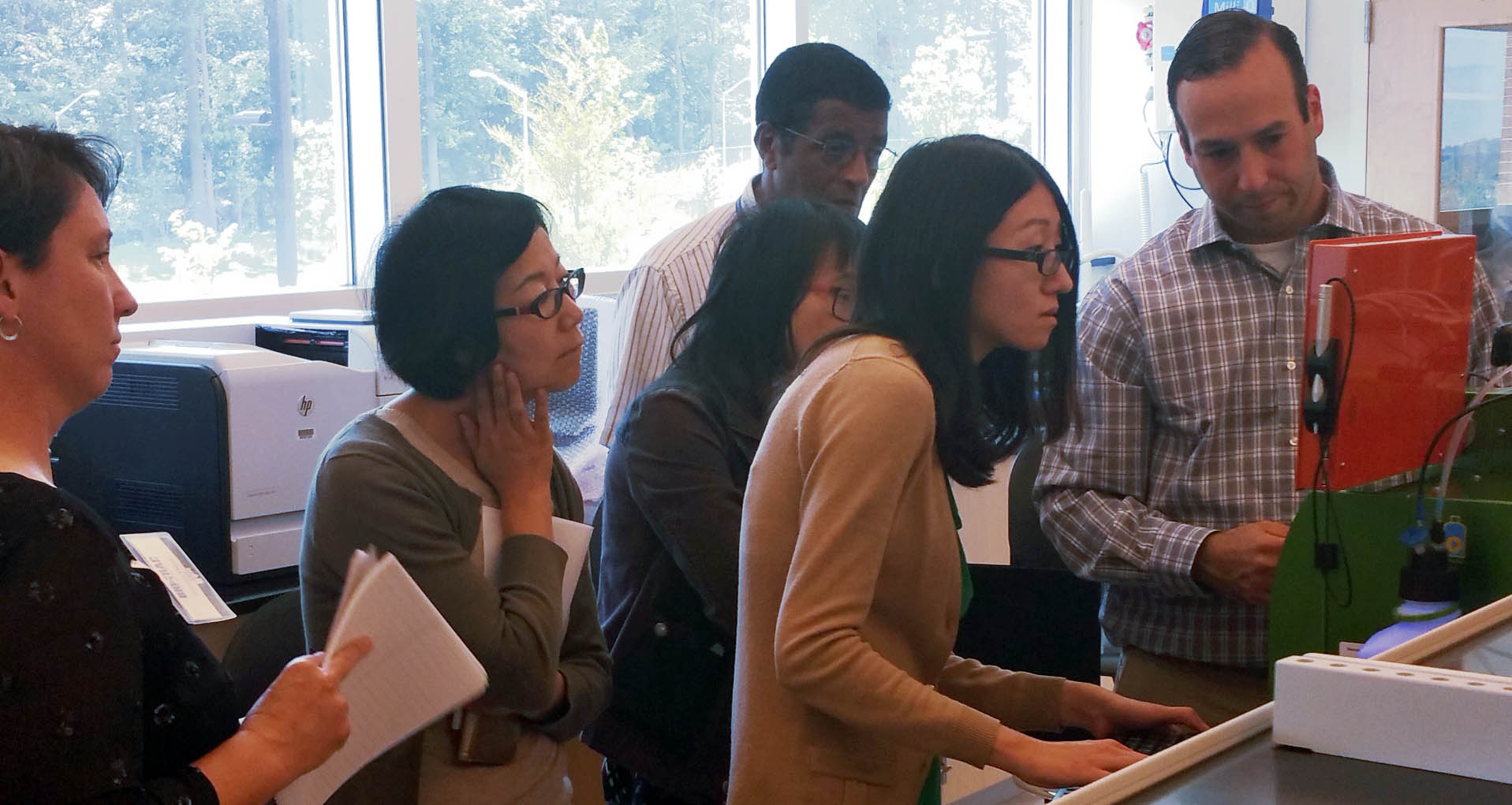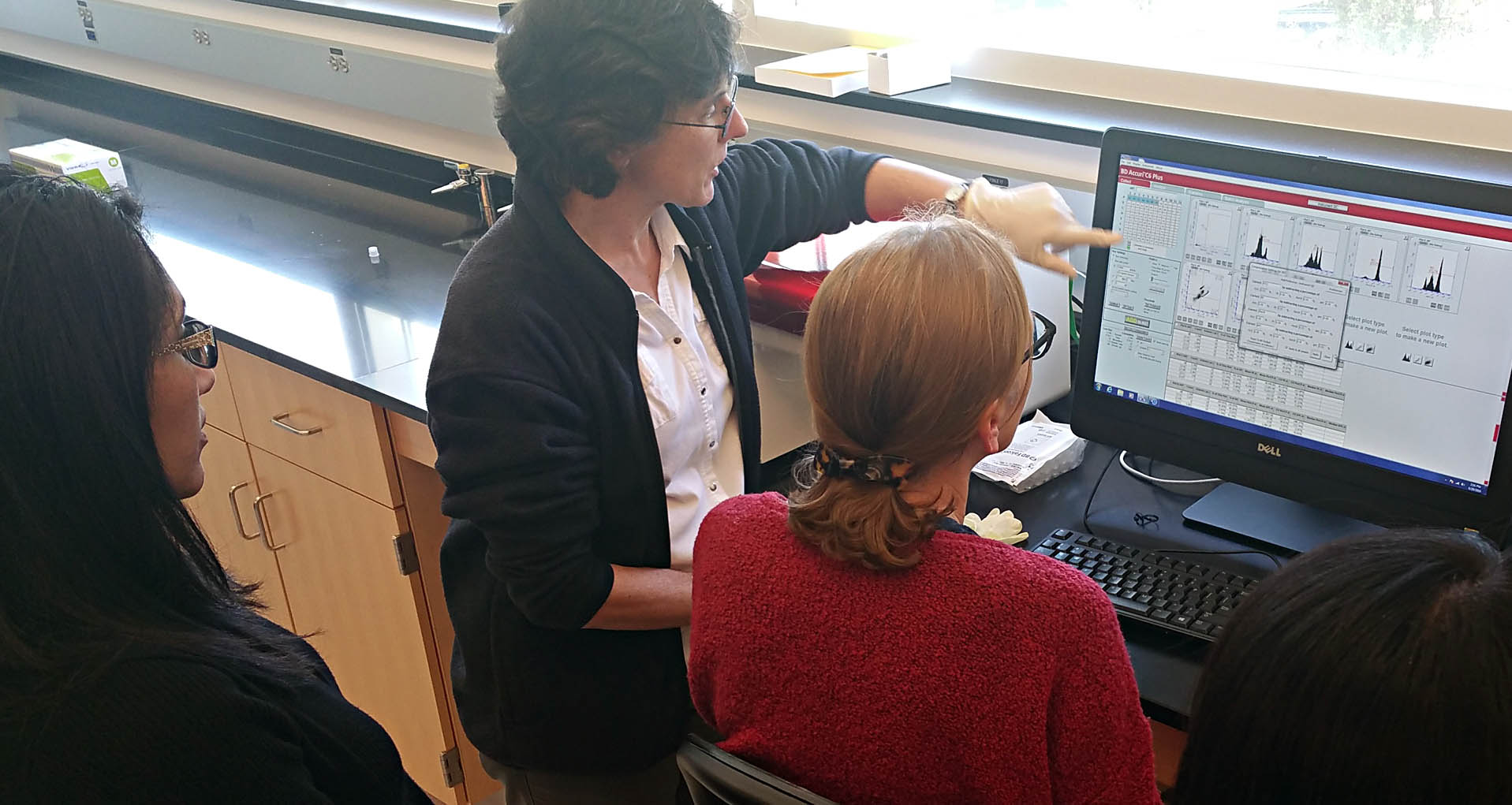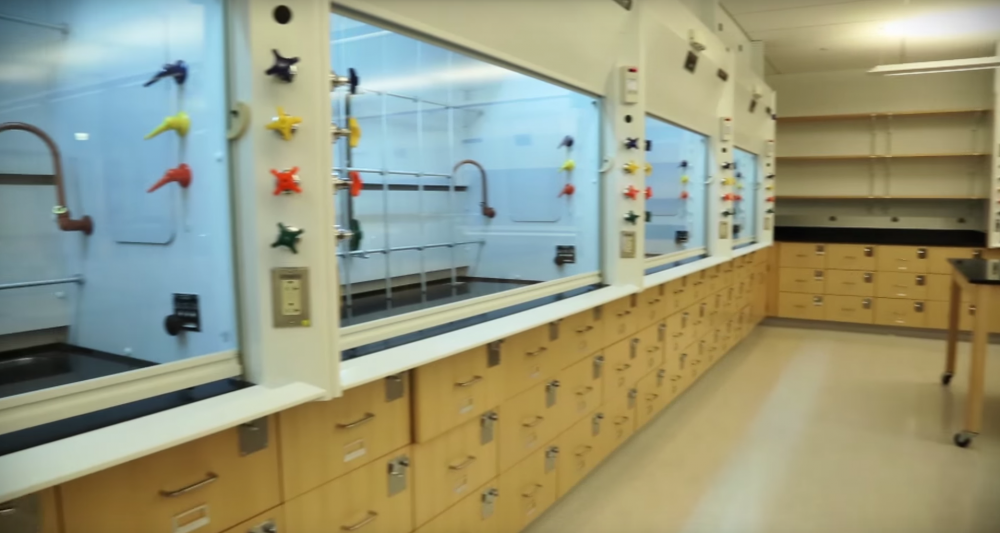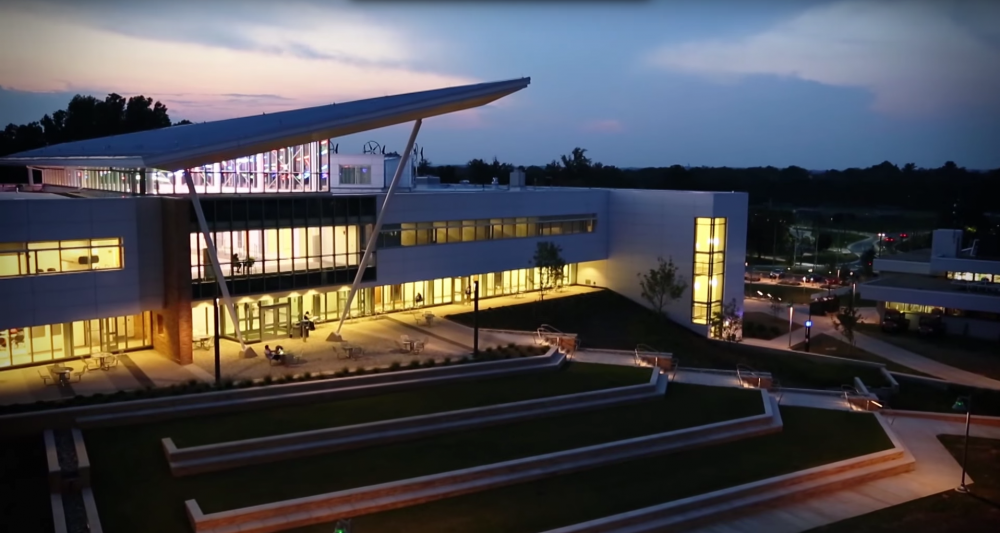July 22-26, 2024
Monday - Friday
Germantown, MD
The Bioscience Education Center
9:00am-5:00pm
1 Hour Lunch Break
This 5-day workshop combines a unique mix of hands-on wet bench and computational laboratory experiences with a series of lectures spanning an introduction to the concepts of RNA sequencing and the analysis of the data generated to the applications of these approaches to understand critical biological and/or biomedical processes and problems. By the end of the program, attendees will have had hands-on experience with RNA sample preparation and differences in sample integrity, a deep understanding of RNA library creation and optimization, and processing of RNA sequences from raw fastq to differential expression with the most current software using cloud computing to analyze real-world datasets from brain samples and knock-out cell lines.
 | Lecture and Hands-on Interactive Training |
 | Team taught by active researchers |
 | Thumbnail drive with Lectures and Workshop material |
 | Space limited to 24 participants |
 | Registration Fee: $1,095 |
-
"As always, Bio-Trac not only met my expectations, but exceeded them! I will absolutely be taking more classes with BioTrac - their classes should be required for all graduates entering the field of science. Easy to understand & follow, yet the classes get to the core of the discussed principle."
Jennie Rowell PhD, RN
Assistant Professor, The Ohio State University
CRISPR 7/16
-
"By nature it was short and intense, yet it proved comprehensive and satisfying. Provided valuable hands-on lab experiences as well. Highly recommend and I look forward to other course offerings."
Jeffrey Stinson
Uniformed Services University for the Health Sciences (USUHS)
iPSC: Reprogramming, Differentiation and Gene Editing with CRISPR 8/16
-
"It was my first experience with professional development workshop in the USA. I liked it a lot. It was well organized, flexible and friendly. It helped to put in order my preceding knowledge and gain more."
Larisa Ryzhara, MD, PhD
Staff Scientist II, Maine Medical Center Research Institute
CRISPR 7/16
-
"This is a very well organized program. Lectures always convey the most advanced knowledge and technologies. Hands-on practice is also very helpful. Highly recommend to colleagues in or out of NIH community."
Guangpu Shi, M.D.
Research Fellow, NEI/NIH
iPSC: Reprogramming, Differentiation and Gene Editing with CRISPR 8/16
-
"Great investment. Took material that would have taken months to compile and perfect on my own, and packed it into 3 days."
Richard Barrett
PHD Student, University of Central Florida
CRISPR 7/16
-
"Bio-Trac offers wonderful workshops that provide up-to-date, useful technological information and knowledge important for my research applications."
Thuy Phung, MD, PhD
Baylor College of Medicine
NGS 10/16
Course Co-Director
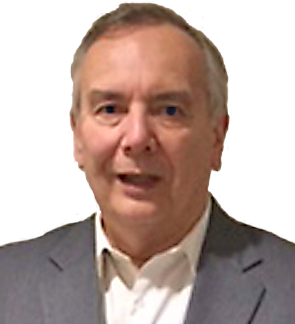
Frank Castora, Ph.D.
Professor
Eastern Virginia Medical School
Course Co-Director
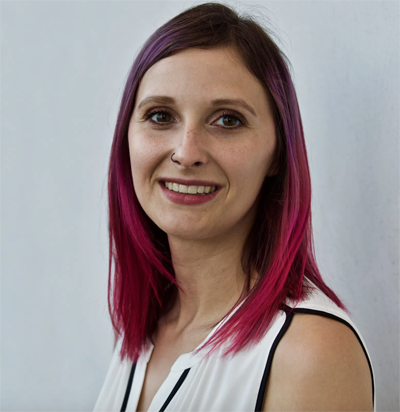
Allissa Dillman, Ph.D.
CEO, BioData Sage LLC
This 5-day workshop combines a unique mix of hands-on wet bench and computational laboratory experiences with a series of lectures spanning an introduction to the concepts of RNA sequencing and the analysis of the data generated to the applications of these approaches to understand critical biological and/or biomedical processes and problems. By the end of the program, attendees will have had hands-on experience with RNA sample preparation and differences in sample integrity, a deep understanding of RNA library creation and optimization, and processing of RNA sequences from raw fastq to differential expression with the most current software using cloud computing to analyze real-world datasets from brain samples and knock-out cell lines.
- Introduction to Sequencing and Course Overview
- Review of NGS and Illumina Technologies
- Library Prep and quantification
- RNA Library Preparation and Quantification
- Introduction to QC, Trimming, alignment, and quantification
- Introduction to Differential Expression and Splicing Tools
- Experiment Zoo: Experience across over 100 RNAseq experiments
- Introduction to variant calling, Enrichment analysis
- Spatially-resolved Transcriptomics
- Advanced Topics in RNA-Seq
- Sample Preparation and QC using fluorometric (Qubit) and Gel electrophoretic (Bioanalyzer) analyses
- PC Based: Using Sequence Analysis Programs to Analyze RNA-Seq Data
- QC, Trimming, alignment, and quantification, Differential Expression, and Splicing Tools, Variant Calling Introduction to Tools.
Dr. Frank Castora is a Professor of Biochemistry in the Department of Physiological Sciences at the Eastern Virginia Medical School. Dr. Castora has been involved with teaching in or directing a variety of Bio-Trac training programs at the National Institutes of Health as well as other institutions nationally for over thirty years, including workshops in mitochondrial biogenesis and pathology, recombinant DNA technology, PCR, microarray analysis, and RNA-seq. Currently his research interests include mitochondrial DNA mutations and gene expression in AD as well as mitochondrial function in human reproduction and fertility
Dr. Allissa Dillman is the founder and CEO of BioData Sage LLC, a company focused on providing a holistic approach to data science integration in the biomedical and biological science fields. Dr. Dillman offers data science strategic planning, including the usage of appropriate tools, platforms, datasets, and reproducible practices. BioData Sage works with clients in industry, academia, government, and the nonprofit sector, creating and supporting training programs on data science, cloud computing, and the tools and standards for reproducible data science practices for scientific and lay communities.
Dr. Dillman worked at NIH for over 10 years and most recently served as the workforce development and community engagement lead for the Office of Data Science Strategy (ODSS). She built and executed data science integration programs bringing in undergraduates through mid-level data scientists to tackle NIH’s complex data ecosystem. Allissa has focused specifically on lowering the barriers of entry for data science and cloud computing by building train-the-trainer programs for STEM educators from low-resourced schools and facilitating data science training programs for students at HBCUs, MSIs, and HSIs. She has coordinated and participated as a judge, mentor, and team lead in over 50 hackathons in academia, industry, government, and nonprofit sectors. Dr. Dillman has contributed to over 50 scientific publications and has a long-standing research interest in using bioinformatic tools and data science techniques to answer a wide variety of biological questions. Dr. Dillman received her Ph.D. in computational neuroscience as part of the graduate partnership program between NIH and the Karolinska Institute, Sweden, in 2014.
At Bio-Trac, Dr. Dillman directs a Next Generation Sequencing workshop; co-directs several workshops including “R for Research Scientist” and “RNA-Seq: Principles, Methods and Computational Analysis” as well as an active instructor in the Single Cell RNA-Seq workshop.
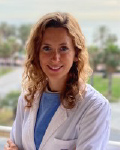 | Sara Bandres Ciga, PhD Staff Scientist Center for Alzheimer’s and Related Dementias (CARD) Bethesda, MD Since 2013, my research interest has focused on understanding how genetic variation affects neurodegenerative diseases. My scientific career started with a Neuroscience M.Sc and a Ph.D. (Hons) in Biomedical Sciences from the University of Granada, Spain. In 2017, I joined the Laboratory of Neurogenetics at NIA as a Postdoctoral Visiting Fellow with the goal of conducting further research in the data science field, aimed at studying neurological disorders spanning the etiological risk spectrum from monogenic to more complicated sporadic forms. To date, I have co-authored over 130 peer-reviewed publications in this area of research, several of them international consortia collaborative manuscripts. A majority of these publications include applying current methods in data science and statistical genetics to multi-modality clinico-genomic datasets at scale. I am passionate about training, democratization and promoting inclusivity in science. I am an instructor at the Foundation of Advanced Education in the Sciences since September 2020. I co-lead the Training, Networking and Communication Working Group under the Global Parkinson’s Disease Genetics Initiative (GP2)(https://www.gp2.org/working-groups/training-networking-and-communication-working-group/), in which I create freely available web training resources and opportunities for the scientific community with a main focus on underrepresented populations. In addition, I co-lead the International Parkinson’s Disease Genetics Consortium Trainee Group (IPDGC-Trainees), a network established in January 2020 and designed to empower early career scientists to generate, plan, and conduct their own analyses. This program involves over 100 students from six continents. Furthermore, I am the co-Chair of the Career Development & Advisory (CDA) Commission of ECUSA National (Spanish Scientists Association in the USA) My goal is to work for the advancement of neurodegenerative disease research and training the new generations of scientists. |
 | Leonardo Collado Torres, PhD Investigator Lieber Institute for Brain Development Professor at Department of Biostatistics, Johns Hopkins Bloomberg School of Public Health Baltimore, MD At the Lieber Institute for Brain Development (LIBD), I lead the R/Bioconductor-powered Team Data Science group that works on understanding the roots and signatures of psychiatric disorders by zooming in across dimensions of gene activity. We achieve this by studying gene expression at all expression feature levels (genes, exons, exon-exon junctions, and un-annotated regions) and by using different gene expression measurement technologies (bulk RNA-seq, single cell/nucleus RNA-seq, and spatial transcriptomics) that provide finer biological resolution and localization of gene expression. We work closely with collaborators from LIBD as well as from Johns Hopkins University (JHU) and other institutions, which reflects the cross-disciplinary approach and diversity in expertise needed to further advance our understanding of high throughput biology. In order to provide a supportive and stimulating research environment at LIBD, our group provides Data Science guidance sessions open to any LIBD staff member and we organize the LIBD rstats club, among other initiatives. Our documentation book website contains more details for on boarding, how to ask for help, writing papers, authorship, configuration files, & much more. As a quick background, I graduated from the Undergraduate Program on Genomic Sciences from the National Autonomous University of Mexico (UNAM) in 2009 and worked for two years at Winter Genomics analyzing high-throughput sequencing data. I then got a PhD in 2016 from the Department of Biostatistics at Johns Hopkins Bloomberg School of Public Health thanks to a CONACyT scholarship. There I worked with Jeff Leek and Andrew Jaffe in developing derfinder and recount. I then worked ~ 4 years as a Staff Scientist and Research Scientist in Andrew Jaffe’s lab on a variety of data analysis projects. I became a principal investigator in September 2020. Since October 2023, I'm also an Assistant Professor in the Department of Biostatistics at JHBSPH. Every day I use R and Bioconductor, and on some days I write R packages. Occasionally I write blog posts about them and other tools. I’m a co-founder of the LIBD rstats club and the CDSB community of R and Bioconductor developers in Mexico and Latin America. In the past, I also served on the Bioconductor Community Advisory Board. |
 | Kristal Young Illumina Field Applications Scientist April 2014-Present |

